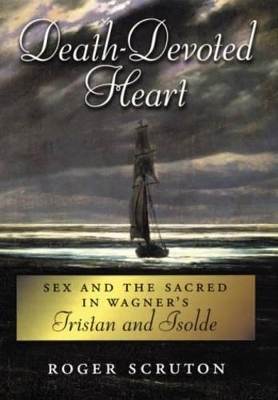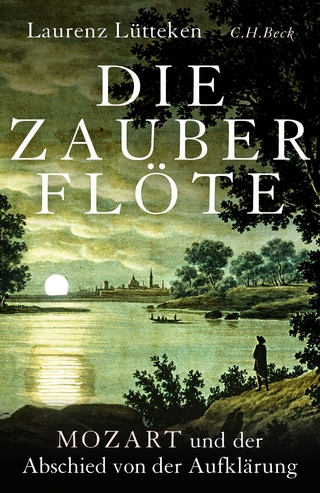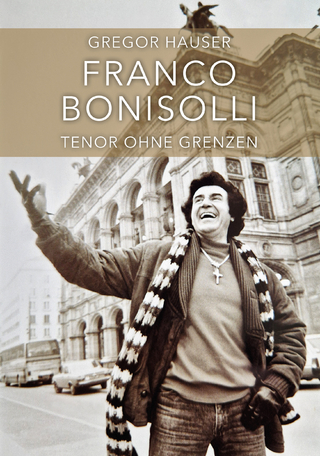
Death-Devoted Heart
Sex and the Sacred in Wagner's Tristan and Isolde
Seiten
2004
Oxford University Press Inc (Verlag)
978-0-19-516691-0 (ISBN)
Oxford University Press Inc (Verlag)
978-0-19-516691-0 (ISBN)
In Death-Devoted Heart Roger Scruton argues that Tristan und Isolde has profound religious meaning. Blending philosophy, criticism and musicology, he shows the work is as relevant today as it was to Wagner's contemporaries. Scruton's analysis touches on the nature of tragedy, the significance of ritual sacrifice, and the meaning of redemption.
A tale of forbidden love and inevitable death, the medieval legend of Tristan and Isolde recounts the story of two lovers unknowingly drinking a magic potion and ultimately dying in one another's arms. Critics have lauded Wagner's Tristan und Isolde for the originality and subtlety of the music, but have often viewed the drama as a "mere trifle," about Wagner's own forbidden affair with Matilde Wesendonk, the wife of a banker who supported him during his exile in Switzerland. In Death-Devoted Heart Scruton aims to vindicate the stature of the drama, presenting it as more than just a sublimation of the composer's love for Wesendonck or a wistful romantic dream. Scruton argues that Tristan und Isolde has profound religious meaning, as relevant today as it was to Wagner's contemporaries. Both philosophical and musicological, Scruton's analysis touches on the nature of tragedy, the significance of ritual sacrifice, and the meaning of redemption. Scruton provides a guide to the drama while offering insight into the nature of erotic love and the peculiar place of the erotic in our culture.
A tale of forbidden love and inevitable death, the medieval legend of Tristan and Isolde recounts the story of two lovers unknowingly drinking a magic potion and ultimately dying in one another's arms. Critics have lauded Wagner's Tristan und Isolde for the originality and subtlety of the music, but have often viewed the drama as a "mere trifle," about Wagner's own forbidden affair with Matilde Wesendonk, the wife of a banker who supported him during his exile in Switzerland. In Death-Devoted Heart Scruton aims to vindicate the stature of the drama, presenting it as more than just a sublimation of the composer's love for Wesendonck or a wistful romantic dream. Scruton argues that Tristan und Isolde has profound religious meaning, as relevant today as it was to Wagner's contemporaries. Both philosophical and musicological, Scruton's analysis touches on the nature of tragedy, the significance of ritual sacrifice, and the meaning of redemption. Scruton provides a guide to the drama while offering insight into the nature of erotic love and the peculiar place of the erotic in our culture.
Roger Scruton is a well-known writer and philosopher and controversial journalist, and a former Professor of philosophy at Boston College. He's written more than 20 books on aesthetics, culture, and politics.
1. Wagner and Religion ; 2. The Story of Tristan ; 3. Wagner's Treatment of the Story ; 4. The Music of Tristan ; 5. The Philosophy of Love ; 6. Tragedy and Sacrifice ; 7. Love, Death, and Redemption ; Epilogue: From Death to Ritual ; Appendix: Table of Motives ; Notes ; Selected Bibliography ; Index
| Erscheint lt. Verlag | 22.1.2004 |
|---|---|
| Zusatzinfo | 9 music examples |
| Verlagsort | New York |
| Sprache | englisch |
| Maße | 154 x 219 mm |
| Gewicht | 386 g |
| Themenwelt | Kunst / Musik / Theater ► Musik ► Klassik / Oper / Musical |
| Kunst / Musik / Theater ► Musik ► Musiktheorie / Musiklehre | |
| Geisteswissenschaften ► Philosophie | |
| ISBN-10 | 0-19-516691-4 / 0195166914 |
| ISBN-13 | 978-0-19-516691-0 / 9780195166910 |
| Zustand | Neuware |
| Haben Sie eine Frage zum Produkt? |
Mehr entdecken
aus dem Bereich
aus dem Bereich
Mozart und der Abschied von der Aufklärung
Buch | Hardcover (2024)
C.H.Beck (Verlag)
28,00 €


